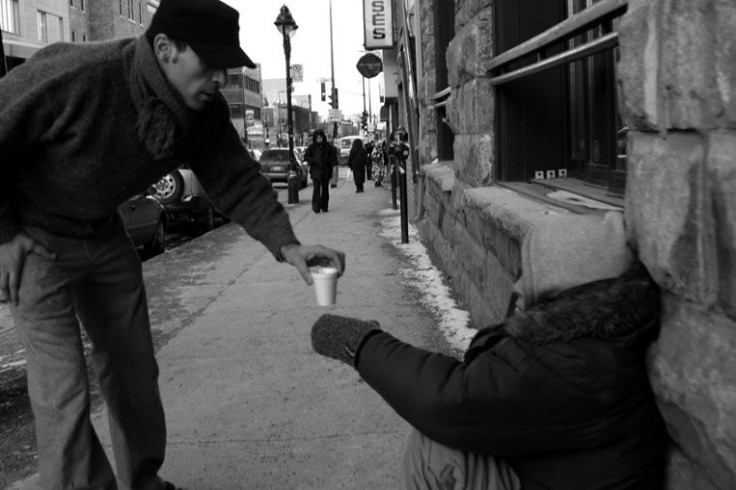Pay It Forward: Being Nice Is Part Of Human Nature

A team of researchers from Yale University have some pretty good news for humanity: Most people are inherently good and kind-hearted, and it’s the mean girls and guys who deviate from the norm. In fact, according to their study, unkindness is a deliberate attempt to override our natural instinct to pay it forward.
Every day, newspapers cover stories of heroism and bravery, of normal men and women who go out of their way — perhaps even put their own lives in danger — in order to help others. But what sets these men and women apart from their unkind counterparts? Recently, Yale psychology graduate student Adam Bear and psychology professor David Rand investigated whether or not kindness was an integral part of human nature or a divergence from natural order.
The duo developed a game to measure player’s altruistic or unselfish behavior. The game was similar to previous models in that it aimed to determine player’s altruistic behavior, but unlike previous models, this new model allowed volunteers to play more than one game at a time. In some games, altruistic behavior was rewarded, though in others it was not. This meant players did not have a fixed strategy and would be forced to readjust with their every move.
Researchers noticed two common behavioral patterns start to take shape: Players who relied on instinct to make their decisions tended to come from a more friendly and supportive environment, having benefited from generosity in the past. As a result, they were more likely to be kind and helpful to others, regardless of whether it ended up being beneficial to them or not. On the other hand, individuals who relied more on strategy, and tried to decipher whether or not a move was personally beneficial, tended to come from more hostile environments. Without personal gain, strategic individuals forced down their natural instinct to be cooperative. Individuals who are deliberately uncooperative also end up acting selfishly in instances that would otherwise benefit them.
“Our model predicts that they’ll develop an instinct to be selfish and won’t ever deliberate,” Bear told Medical Daily in an email. “In other words, they won’t ever change their instinct to be selfish and switch over to cooperation after deliberating.”
Why did humans evolve to develop an inclination toward kindness and cooperation in the first place? Famed evolutionary scientist Charles Darwin believed nature favored cooperation because it urged humans to work together and help each other out, ultimately increasing our chances for survival as a species.
“Cooperation is a fundamental principle of evolution,” Martin Nowak, a biologist and mathematician who directs Harvard University’s Program for Evolutionary Dynamics, told Discover Magazine. “Without it, you don’t get construction or complexity in life. Whenever you see something interesting, like the evolution of multicellular creatures or human language, cooperation is involved.”
Source: Bear A, Rand DG. Intuition, deliberation, and the evolution of cooperation. PNAS. 2016.



























